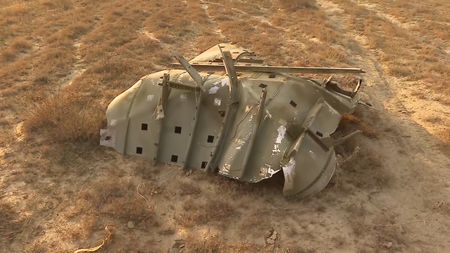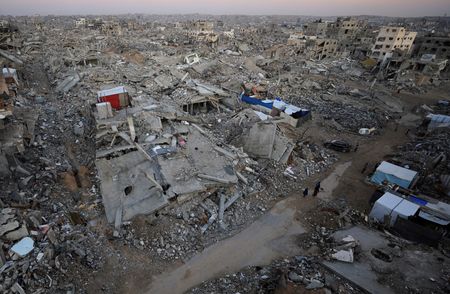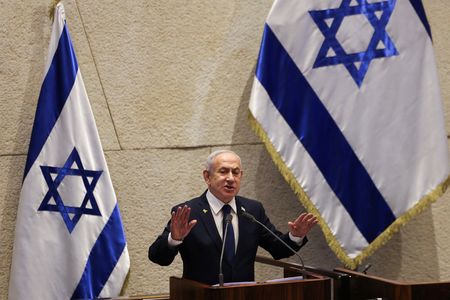By Vladyslav Smilianets and Sergiy Karazy
(Reuters) – As snow fell in a wooded area of Ukraine, the long-range attack drones accelerated one by one down an unlit, abandoned road and their whirring engines propelled them into the night sky.
The unmanned aircraft carrying explosive warheads are part of a Ukrainian campaign of long-range drone attacks that aim to inflict blows on Russia far behind the front line as Moscow’s troops advance in the east.
“Our main goal is to conduct strikes to hit logistics hubs in the rear, ammunition warehouses and decrease our enemy’s pressure on the front,” said the battalion commander of the Ukrainian drone unit, who gave only the call sign Casper.
Kyiv’s military granted Reuters exclusive access during the launch of the drones, but said the location and date of the strike could not be disclosed for security reasons.
Ukraine has kept much of its wartime drone programme secret, seeing it as an invaluable way to chip away at Russia’s vast military industrial base despite it lacking the huge arsenal of long-range missiles that Russia has.
Moscow conducts long-range drone attacks on a nightly basis, while Kyiv has stepped up its own drone strikes in recent weeks, with U.S. President Donald Trump pushing to halt the nearly three-year full-scale war between Russia and Ukraine.
The prospect of possible peace talks pushes both warring sides to try to improve their battlefield positions so they are in a stronger position to negotiate.
Russia’s defence ministry said on Friday that an overnight Ukrainian attack involving more than 121 drones had targeted 13 of its regions, but that they had repelled it.
Ukraine’s military said the attack hit a Russian oil refinery and a microchip factory in the Bryansk region with video posted online showing a giant plume of smoke and flames engulfing an oil refinery in Russia’s Ryazan region.
Casper’s unit, Ukraine’s 14th Unmanned Aerial Systems Regiment, numbers a few hundred people and has its own analysts and engineers, and is focused specifically on long-range strikes.
One of the unit’s founders, who uses the call sign Fidel, told Reuters that they had drones that had reached ranges of 2,000 km (1,240 miles) during combat missions.
He said their unit had carried out many strikes, including on the Russian airbase at Engels, which is located about 730 km (450 miles) southeast of Moscow and hosts strategic bombers.
Despite their impact in the war, Fidel said he believed that “unmanned systems alone cannot change the course of the war”.
“You still need infantry … you need artillery … you need aviation, and many, many other things,” he said.
Casper said they were using the domestically produced “Lyuty” drone for the strikes.
“The efficiency of our weapon is 40%-50% in total,” he added.
Reuters was unable to independently verify that assessment.
(Writing by Tom Balmforth; Editing by Alison Williams)















